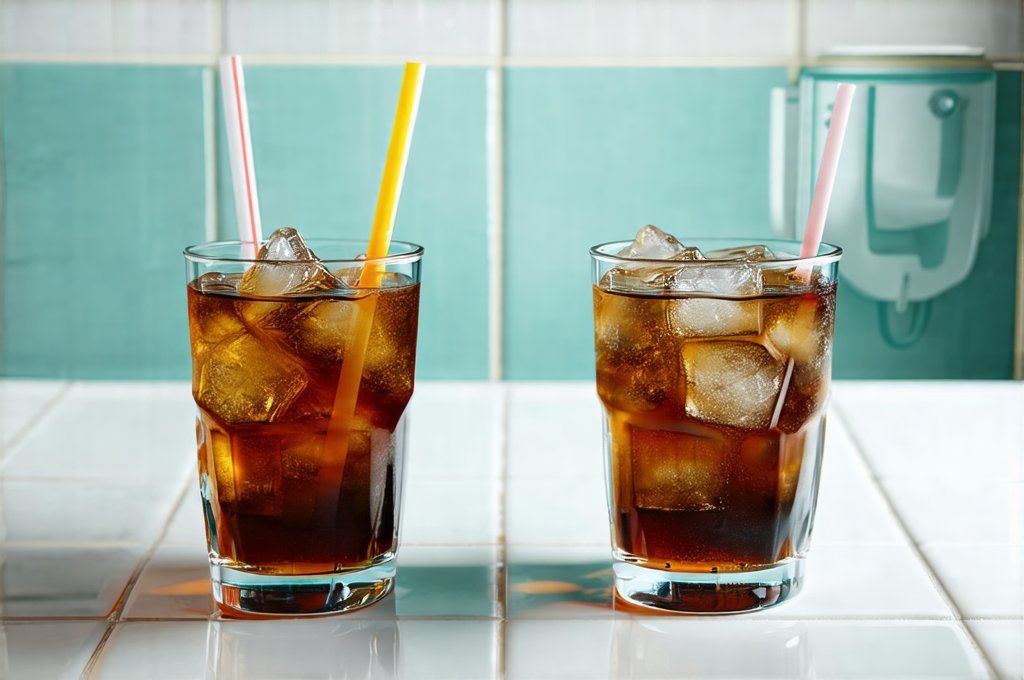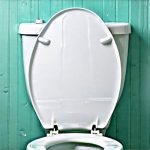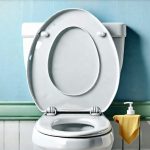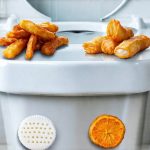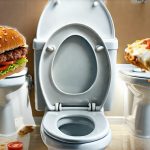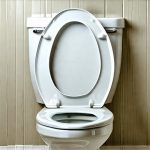The sudden, insistent need to rush to the bathroom after enjoying a cold beverage on an empty stomach is a surprisingly common experience. It’s a physiological reaction many individuals encounter, ranging from mild discomfort to genuine urgency, prompting questions about why this happens and what factors contribute to it. While often dismissed as a minor inconvenience, understanding the mechanics behind this phenomenon can provide reassurance and potentially inform lifestyle adjustments. The feeling isn’t typically indicative of an underlying health problem, but recognizing its triggers allows for better management and awareness of bodily responses.
This seemingly simple reaction is actually a complex interplay between several systems within the body. It’s not just about the coldness of the drink or the emptiness of the stomach; it involves temperature sensitivity, gastrocolic reflex stimulation, and the speed at which fluids move through your digestive system. The sensation can be particularly pronounced in individuals with sensitive digestive tracts or those prone to irritable bowel syndrome (IBS), although even people without these conditions frequently experience it. Ultimately, understanding this phenomenon isn’t about preventing it entirely – as that may not always be possible or desirable – but rather understanding the mechanisms and mitigating its disruptive effects. If you often struggle with symptoms after eating, consider best ways to recover from a trigger meal.
The Role of Temperature & Stomach Sensitivity
The abrupt shift in temperature within the digestive system is a primary contributor to bathroom urgency after drinking cold beverages on an empty stomach. When a very cold liquid enters the stomach, which ideally operates at body temperature, it causes a rapid cooling effect. This sudden change triggers a cascade of responses as the body attempts to restore internal homeostasis—its natural state of balance. – The stomach’s musculature contracts more vigorously in response to cold temperatures. – These contractions can stimulate peristalsis, the wave-like muscle movements that propel food and fluids through the digestive tract. – This accelerated movement increases pressure on the colon, potentially leading to a quicker need to eliminate waste.
The degree of sensitivity varies significantly between individuals. Some people have stomachs naturally accustomed to temperature fluctuations and experience minimal impact from cold drinks. Others, however, possess more sensitive gastrointestinal systems that react strongly to even slight changes. People with pre-existing conditions like IBS often report heightened sensitivity; their digestive tracts may be more reactive to stimuli in general, amplifying the effects of a cold drink. Furthermore, an empty stomach lacks the buffering effect provided by food which would slow down and moderate the temperature change. The liquid hits the system directly, increasing the intensity of the sensation. If you suspect low stomach acid could be playing a role, it’s worth exploring with your doctor.
It’s important to note that this isn’t necessarily a bad thing; it’s your body attempting to maintain equilibrium. However, the rapid stimulation can be uncomfortable or inconvenient, especially when unexpected. This is why drinking cold beverages with or after meals often results in less noticeable urgency – food acts as a natural buffer and slows down the digestive process. The stomach also has time to adjust to the temperature changes more gradually.
Understanding the Gastrocolic Reflex
The gastrocolic reflex plays a significant role in this physiological response. This is a naturally occurring reflex that causes the colon to contract when the stomach expands, whether from food or liquid intake. It’s essentially your body’s way of making room for incoming nourishment by stimulating bowel movement. The presence of cold liquids in an empty stomach dramatically amplifies this reflex. – Because the stomach isn’t occupied with solid food, it fills more quickly with the liquid. – This rapid expansion triggers a stronger and faster gastrocolic response. – The colon contracts more forcefully to accommodate the pressure from the expanded stomach.
This intensified reflex is what often results in the urgent sensation to defecate alongside the increased urination. While most associate cold drinks with needing to pee, the gastrocolic reflex explains the simultaneous urge to go number two. It’s a testament to how interconnected our digestive system truly is; one event can trigger a chain reaction affecting multiple organs. The speed and intensity of this effect are directly correlated with the volume of liquid consumed and the emptiness of the stomach. A small sip of water might not cause any noticeable response, but a large glass on an empty stomach is likely to induce a more pronounced effect.
Mitigating Urgency: Practical Strategies
While eliminating bathroom urgency entirely may be unrealistic for some, several strategies can help manage it effectively. These focus primarily on modifying drinking habits and dietary choices. 1. Hydrate Consistently: Instead of large volumes of cold liquid at once, sip water throughout the day to maintain consistent hydration. This reduces the shock to your system. 2. Drink with or After Meals: Consuming cold beverages alongside food, or shortly after eating, provides a buffering effect that slows down digestion and minimizes temperature fluctuations. 3. Temper the Temperature: Consider slightly less icy drinks, opting for chilled rather than extremely cold options. Even a small adjustment can make a difference. You might also want to consider impact of cold beverages on your gut function.
Beyond these changes, paying attention to your body’s individual responses is key. If you know certain beverages consistently trigger urgency, consider limiting their consumption or avoiding them altogether. Monitoring your diet and identifying potential sensitivities can also prove helpful. – Are you more prone to this after specific foods? – Does the type of liquid (water, juice, soda) matter? Answering these questions will help refine your approach to managing the situation. Finally, remember that this is a common physiological response; there’s no need for undue worry unless accompanied by other concerning symptoms like persistent pain or changes in bowel habits. You may also find it helpful to understand why GERD symptoms are often worse on an empty stomach.
Addressing Underlying Sensitivities
If bathroom urgency from cold drinks persists despite lifestyle adjustments, it may be worth exploring potential underlying sensitivities. This doesn’t necessarily indicate a serious medical condition but could point to increased intestinal permeability – often referred to as “leaky gut”– or heightened visceral sensitivity. – Increased Intestinal Permeability: A compromised intestinal barrier allows undigested food particles and toxins to enter the bloodstream, triggering inflammation and potentially exacerbating digestive sensitivities. – Visceral Hypersensitivity: Individuals with this condition experience an amplified perception of normal bodily sensations in the abdomen, making them more prone to discomfort from even mild stimuli like cold liquids.
It’s important to emphasize that self-diagnosing is never recommended. If you suspect underlying issues, consulting a healthcare professional is essential for accurate assessment and appropriate guidance. They may recommend specific tests or dietary changes to identify potential sensitivities and develop a personalized management plan. – Food elimination diets can help pinpoint trigger foods. – Probiotic supplements might support gut health and improve intestinal barrier function. – Stress management techniques could reduce overall digestive sensitivity. Consider what really triggers heartburn even on an empty stomach, as sensitivities can vary.
Ultimately, understanding the intricate interplay between temperature, gastrointestinal reflexes, and individual sensitivities is crucial for effectively managing bathroom urgency from cold drinks on an empty stomach. By adopting mindful drinking habits, paying attention to your body’s responses, and addressing any underlying sensitivities, you can minimize discomfort and enjoy a more comfortable digestive experience. You may also find slow-cooked meals easier on the stomach during sensitive times. And be aware of cold drinks that inflame the esophagus lining, to make informed choices about what you consume.

